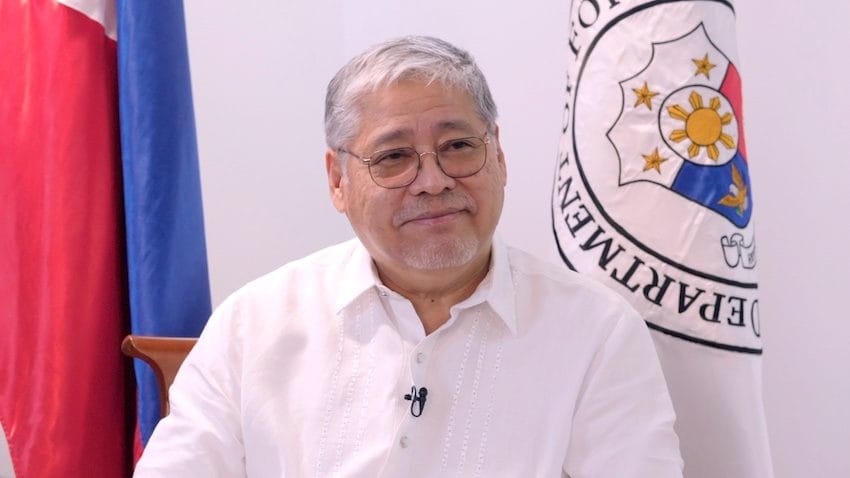Philippines says China to blame for 'choppy' bilateral ties

Source: Rappler
Author: Bea Cupin
MANILA, Philippines - As a Senate panel probed the wiretapping of a call between a Philippine naval commander and a Chinese diplomat, on Wednesday, May 22, Foreign Secretary Enrique Manalo described the current state of bilateral relations between Manila and Beijing as "a bit choppy."
"I would say they're a bit choppy. There are many issues which have come up recently. But mainly...it's really been an effort by the Philippines to assert our rights in our exclusive economic zone in the West Philippine Sea and this assertion is based on rights which are granted by international law.... So that's all that the Philippines has been doing, is doing, and will continue to do," said Manalo in a briefing with select Philippine media.
Manalo, a career diplomat who has helmed the Department of Foreign Affairs (DFA) since President Ferdinand Marcos Jr. took office, said it was China's "illegal" actions in the West Philippine Sea that are to blame for the rising tensions.
"China has continued to harass our fishermen, try and block our efforts to resupply our military personnel in Ayungin Shoal and also our fishermen in Scarborough Shoal. So these actions are and have been inconsistent and, in fact, are illegal in the sense that they are not consistent with international law," said Manalo.
"These actions have been a cause for raising tensions. We're merely trying to assert our rights. And unfortunately, we are being hampered in doing so. In my personal belief, this is creating the tensions," he added.
Manalo made the statement when asked to describe bilateral ties with Beijing, over two years into the Marcos administration.
The West Philippine Sea refers to a part of the South China Sea that includes the Philippines' exclusive economic zone (EEZ). China claims a large part of the South China Sea as its own, despite a 2016 arbitral ruling that invalidated its 9-dash turned 10-dash claim.
Ayungin Shoal (Second Thomas Shoal) and Panatag Shoal (Scarborough Shoal or Bajo de Masinloc) have been flashpoints for tensions between Manila and Beijing in the West Philippine Sea. China, mainly through its China Coast Guard (CCG), routinely harasses Filipino fisherfolk and block Philippine government missions to bring supplies to a military outpost in Ayungin Shoal and aide to fisherfolk in Panatag Shoal.
In March, two military resupply missions to Ayungin Shoal, where a rusting warship serves as a military outpost, were met with the CCG's strong water cannons. In late April 2024, the CCG also used water cannons against Philippine government vessels that were trying to patrol Panatag Shoal and bring supplies to fisherfolk in the area.
"We will continue to assert our rights in the appropriate way. And of course, it's not only the Department of Foreign Affairs. This is a government-wide effort. But the President [has made] very clear that it is our priority to assert our national sovereignty, especially where it's justified," said Manalo.
Tensions between the two Asian countries have spilled over to diplomacy and politics, with the two countries trading barbs over alleged deals and supposed reneging of agreements in the West Philippine Sea.
Manalo said no such agreement exists. "I've never seen those agreements. They say they're agreements. But where? Show us. And I don't recall ever having discussed proposals to have such agreements," he said.
The foreign secretary added that he doesn't expect ties with China to "downgrade" despite rising tensions in the West Philippine Sea. "We've always agreed that we should try and manage our relationship, manage our disputes through diplomatic means and through peaceful means, and this includes through meetings," said Manalo.
The Philippines and Beijing are set to convene the Bilateral Consultation Mechanism on the South China Sea for a second time in 2024, with Manila as host. Manalo said a final date was being ironed out.
"We have to have an understanding on how we can manage our relationship without increasing tensions. But then, I think, in many ways, China is not really helping us to do so. That's the challenge because of the many incidents that are occurring. So that's a challenge for us how to do that. But we are still definitely committed to seeking diplomatic means to manage our tensions," he added. - Rappler.com
